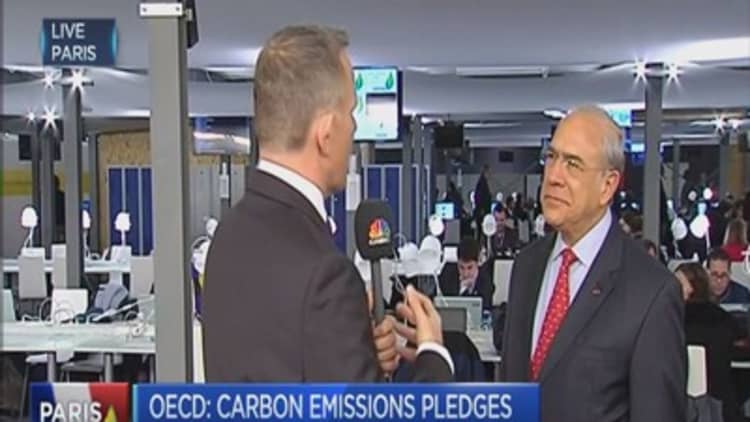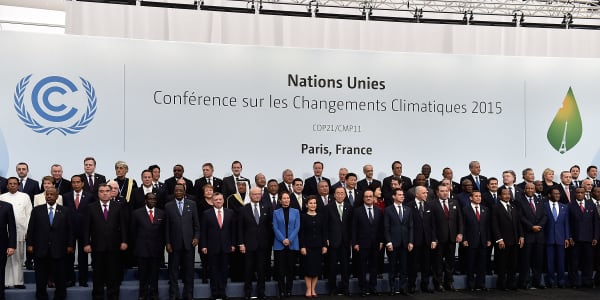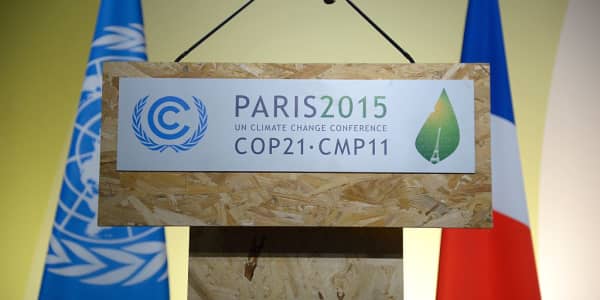
As world leaders gather in Paris to try to reach a potentially era-defining agreement on climate change, one of the key figures in negotiations argued that the quality of the agreements reached is more important than whether they are legally enforceable.
"The teeth of a climate deal will come from the quality of the agreements not the legality of it, there's no police that take you away if you're emitting more than you're committed to," Angel Gurria, secretary-general of the Organisation for Economic Co-operation and Development, told CNBC.
For decades, global climate change talks have been fraught because of tensions between emerging economies, which are more likely to need fossil fuels to help their economic growth, and the wealthier nations who are pushing for progress on reducing pollution. There have also been disagreements over how to enforce targets.
The last major global agreement on climate, the 1997 Kyoto protocol, only required richer nations to cut their emissions. Indian Prime Minister Narendra Modi reinforced this principle in an editorial published in the Financial Times Monday, which said that it would be "morally wrong" if countries richer than India did not take on more responsibility for cutting emissions which can cause global warming and climate change.
"The targets are already there. There will be slippages. We have to do better. The question is execution, execution, execution, implementation, implementation, implementation – although not necessarily in that order," Gurria said.
"This is the deal, is the time, is the place."
Lower oil and gas prices are unlikely to help wean the world off the fossil fuel habit.
There have been growing signs of increased appetite for a deal in recent weeks, with influential mainstream figures such as Bank of England governor Mark Carney calling for more action.
There has been some progress in terms of developed nations moving away from usage of coal, viewed as the worst of the fossil fuels in terms of emissions.
"You've seen the progress in coal. The awareness is growing. There are a lot of inconsistencies and errors of omission and commission," Gurria said.







